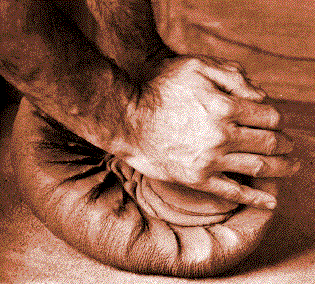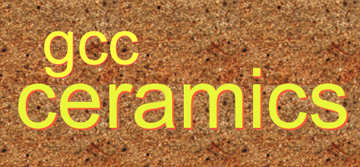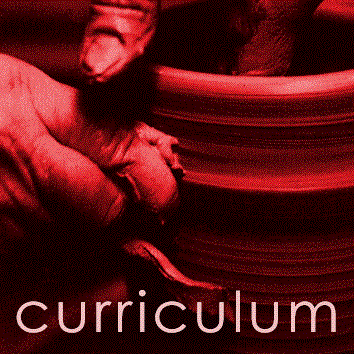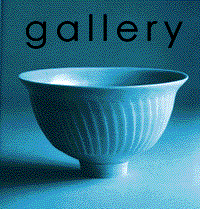PURCHASE OF CLAY RECEIPTS:
Clay is purchased at the College Bookstore in 25lb. bags. Due to the extreme variations in clay quality, workability, and firing temperatures it is essential that you use only clay purchased through the Bookstore. Bringing in clays from outside sources can easily result in your pottery melting in the very high temperatures we fire our kilns. We will not fire pottery made from unknown clay sources. Pay for the clay at the bookstore, save the receipt they give you, bring the receipt to us here in the lab and we will issue you the clay here. We can not issue clay without a receipt, so please don't ask. Here are the clays we will be using in this class:
MCR EARTHENWARE: Brick colored, fine grained terra cotta. Good for throwing or handbuilding. Great clay body for underglazing and majolica.

MCP EARTHENWARE: Gray-white, medium-fine grog, fine for handbuilding, but not so plastic for wheel throwing. Great clay for underglazing.


